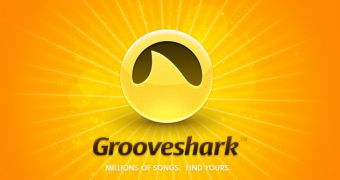Grooveshark, the music streaming service, is currently being sued by all major record labels in several different lawsuits.
The core of the lawsuits are copyright infringement, since the service doesn't pay any licensing for the music it runs, and a contract dispute with EMI, the only label Grooveshark had a deal with, for a short period of time.
It now seems that the lawsuits may be coming to an end, or at the very least, the record labels are making some progress in getting what they want and it's not looking good for Grooveshark, as TorrentFreak found out.
The labels have apparently reached an agreement with several former Grooveshark employees and a current one in which they promise to stop infringing on the copyright of the labels immediately and to never work on something that systematically infringes copyright.
"The Defendant and all those acting in concert with the Defendant shall be immediately and permanently enjoined from infringing in any manner any copyright in any and all sound recordings, whether now in existence or later created, in which any of the Plaintiffs own or control any exclusive rights," the agreement reads.
TorrentFreak takes this as a major step towards the labels winning the lawsuit and Grooveshark essentially getting shut down. But it's important to note that the two founders of the site haven't agreed to anything and neither has the company behind it.
Of those who signed, only one still works at Grooveshark, though the agreement effectively means he's barred from working there any longer.
It is a strange agreement though. That's because, no matter how much the record labels would try to convince you otherwise, whether something is or isn't copyright infringement is still a matter for the courts to decide.
If you steal something from a store, you know you are stealing. Under no circumstances is this legal. If however, you upload a song you don't own the rights for, to a site for others to listen to it, you may be pretty sure that's infringement, but you can't be 100 percent sure, no one can expect a judge.
Granted, uploading a full song without any modifications isn't going to come under fair use, but there are other exceptions to copyright law.
Getting someone to promise to stop working on services which host infringing works is one thing. To get them to promise they will never do it again is plain silly. After all, labels, TV stations and movie studios have argued for years that YouTube is nothing more than a hotbed for infringement.
What if YouTube's founders had signed an agreement previously to creating the site in which they promised not to work on something systematically used for infringement.

 14 DAY TRIAL //
14 DAY TRIAL //